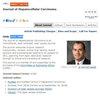ZDHHC20 Activates AKT Signaling Pathway to Promote Cell Proliferation in Hepatocellular Carcinoma
IF 4.2
3区 医学
Q2 ONCOLOGY
引用次数: 0
Abstract
Background: Liver cancer is the sixth most common cancer worldwide, and hepatocellular carcinoma (HCC) presents one of the most challenging global health issues. ZDHHC20, a member of the ZDHHC palmitoyltransferase (ZDHHC-PAT) family, is involved in a reversible lipid modification known as palmitoylation, which contributes to the occurrence and progression of various tumors. However, the specific mechanisms underlying the involvement of ZDHHC20 in this process are unclear.Methods: The effects of both ZDHHC20 knockdown and overexpression on hepatocellular carcinoma cell proliferation were evaluated using PCR, Western blotting, CCK-8 assay, colony formation assay, cell cycle analysis, apoptosis analysis, and EDU assay. The TCGA-LIHC dataset was analyzed bioinformatically, and the phosphorylation level of PI3K and AKT in SK-Hep1 and Huh7 cells was assessed using Western blotting. Nude mouse subcutaneous xenograft experiments were conducted to evaluate the effects of different treatment conditions on mouse tumor growth.
Results: ZDHHC20 knockdown inhibited cell proliferation and promoted apoptosis, while overexpression of ZDHHC20 promoted cell proliferation and inhibited apoptosis. Knockdown of ZDHHC20 also decreased phosphorylation of PI3K and AKT in HCC, whereas overexpression of ZDHHC20 increased phosphorylation of PI3K and AKT. The PI3K-AKT pathway inhibitors, LY294002 and MK2206, effectively inhibited the promotional effects of ZDHHC20 on the proliferation and growth of HCC.
Conclusion: High expression of ZDHHC20 promotes the proliferation and tumor growth of HCC by activating the PI3K-AKT signaling pathway. The PI3K inhibitor LY294002 and the AKT inhibitor MK2206 inhibit the promotional effects of ZDHHC20 on the proliferation of HCC and the growth of tumors.
ZDHHC20 激活 AKT 信号通路,促进肝细胞癌细胞增殖
背景:肝癌是全球第六大常见癌症,肝细胞癌(HCC)是全球最具挑战性的健康问题之一。ZDHHC20是ZDHHC棕榈酰基转移酶(ZDHHC-PAT)家族的成员,它参与了一种称为棕榈酰化的可逆脂质修饰,而棕榈酰化是导致各种肿瘤发生和发展的原因之一。然而,ZDHHC20参与这一过程的具体机制尚不清楚:方法:采用 PCR、Western 印迹、CCK-8 检测、集落形成检测、细胞周期分析、细胞凋亡分析和 EDU 检测等方法评估了 ZDHHC20 敲除和过表达对肝癌细胞增殖的影响。对TCGA-LIHC数据集进行了生物信息学分析,并使用Western印迹法评估了PI3K和AKT在SK-Hep1和Huh7细胞中的磷酸化水平。裸鼠皮下异种移植实验评估了不同处理条件对小鼠肿瘤生长的影响:结果:敲除 ZDHHC20 可抑制细胞增殖并促进细胞凋亡,而过表达 ZDHHC20 则可促进细胞增殖并抑制细胞凋亡。敲除 ZDHHC20 还会降低 HCC 中 PI3K 和 AKT 的磷酸化,而过表达 ZDHHC20 则会增加 PI3K 和 AKT 的磷酸化。PI3K-AKT通路抑制剂LY294002和MK2206能有效抑制ZDHHC20对HCC增殖和生长的促进作用:结论:ZDHHC20的高表达通过激活PI3K-AKT信号通路促进HCC的增殖和肿瘤生长。PI3K抑制剂LY294002和AKT抑制剂MK2206抑制了ZDHHC20对HCC增殖和肿瘤生长的促进作用。
本文章由计算机程序翻译,如有差异,请以英文原文为准。
求助全文
约1分钟内获得全文
求助全文

 求助内容:
求助内容: 应助结果提醒方式:
应助结果提醒方式:


